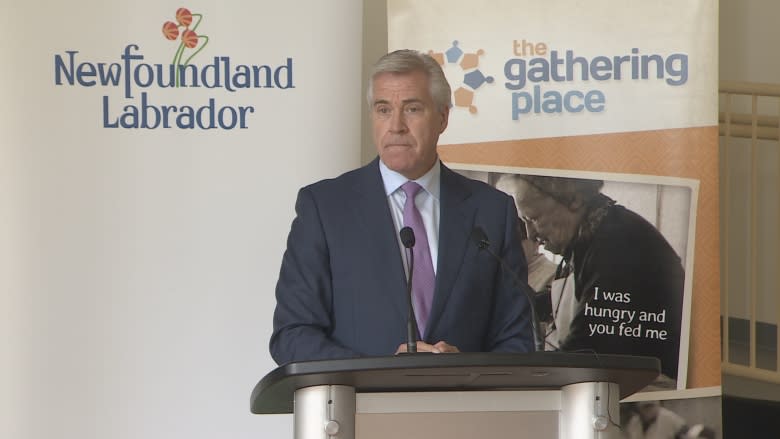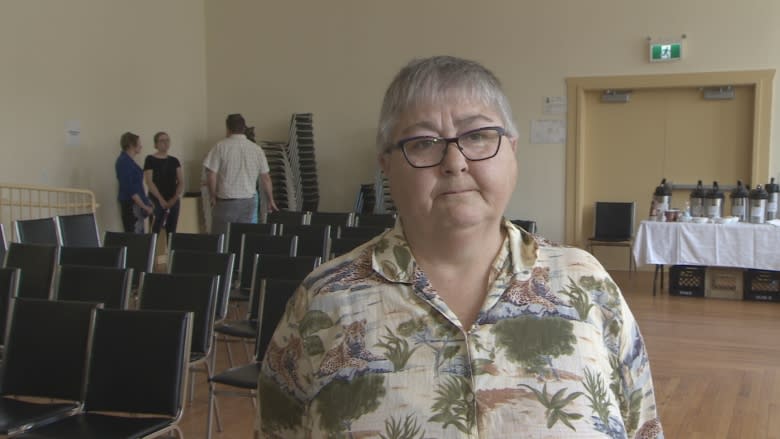Province unveils plans to replace Waterford Hospital, tackle opioid addiction
The provincial government is taking steps to ensure that recommendations to improve mental health care in Newfoundland and Labrador come to fruition — and includes the creation of walk-in mental health clinics across the province.
Premier Dwight Ball unveiled a comprehensive plan to replace the aging Waterford Hospital in St. John's, address the growing fentanyl crisis and establish consistent approaches to mental health care across the province.
The announcement was made Tuesday in St. John's.
The Mental Health and Addictions Plan lays out short, medium and long-term goals — as well as timelines — to ensure the province is able to implement all 54 recommendations made by the all-party committee on mental health back in March.
Those goals include the development of an in-patient and community service model to replace the Waterford, the creation of an eating disorder intensive care unit in St. John's and easier access to the prescription drug Suboxone for opioid addicts.
It also includes shifting health care for prison inmates from the Department of Justice and Public Safety to the Department of Health and Community Services, and the creation of walk-in mental health clinics across the province.
Mobile crisis intervention teams will also begin using the "Memphis model," to ensure cooperation between plainclothes officers and mental health workers in crisis situations.
Mental health advocate pleased
Tree Walsh, with the Safe Works Access Project, is relieved that recommendations made in the March mental health report will be implemented.
"Today it sounds like St. John's is not going to be the centre of mental health for the province which, I think, is the biggest breath of fresh air I've heard in a long time," she said.
According to Walsh, when people are able to access mental health and addictions support in their own communities, it's easier for them to make a full recovery.
Walsh, who admitted for the first time Tuesday that she's struggled in the past with drug addiction, said she had to leave the province to find help.
"I had to leave Newfoundland to get the help I needed and it was provided through one treatment centre in Toronto and they supported me for years afterwards," she said.
"That's the kind of treatment we need here and we don't have it right now."
She's hopeful the plan to provide case management and access to Suboxone through regional service hubs will help opioid addicts across the province.
Walsh is also pleased with the decision to transfer health care for inmates in correctional facilities to the Department of Health.
That means inmates will not have to switch health care providers when they enter and exit prison.
"The fact is, people who are incarcerated have the same rights as the rest of us, and having a different level of health care determined by the justice system just is wrong."
5 years to meet recommendations
The province has committed to meeting its mental health goals in the next five years.
In order to ensure plans are met in a timely fashion, progress reports will be provided to the public periodically beginning in December 2017.
All goals, including the replacement of the Waterford facility, are forecasted to be completed by March of 2022.




